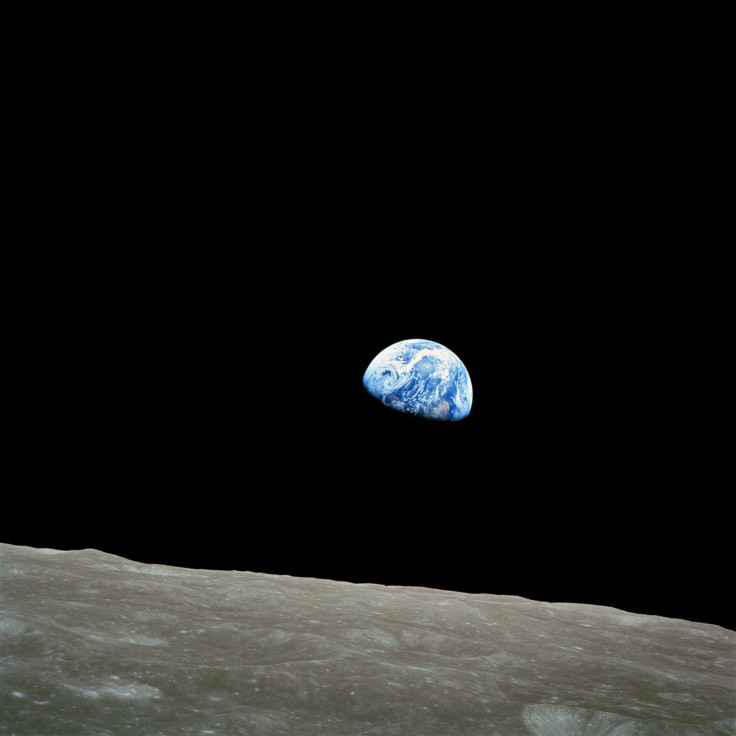1 Out Of 4 Americans Do Not Know The Earth Orbits The Sun, But What Do Those Figures Really Mean?

According to a new survey that focuses on public awareness and perceptions of science, research and scientists, only 74 percent of Americans that participated knew that the Earth orbits the sun. The survey also revealed a strong appreciation for the work of scientists while Americans continue to struggle to answer basic science questions.
Despite these seemingly negative results on America’s scientific knowledge, the survey’s conclusions are more ambiguous. While there are some concerns there are plenty of positives, including the favorable opinion of science by Americans as well as a favorable comparison in results to other countries.
The survey, "Science and Technology: Public Attitudes and Understanding," conducted in 2012, involved more than 2,220 Americans and was conducted by the National Science Foundation for the Science and Engineering Indicators report that is presented to the federal government. The research was led by John Besley of Michigan State University, and presented at the annual meeting American Association for the Advancement of Science.
One of the major findings was that 74 percent of Americans surveyed knew the Earth orbits around the sun. As part of the survey participants were given nine basic science questions and, on average, answered 6.5 of them correctly. A vast majority of Americans, more than 90 percent, are interested in new medical breakthroughs and a similar percentage say the benefits outweigh any potential harm in regards to science.
There is a healthy appreciation for the work of scientists, 90 percent and the majority of participants, 60 percent, have visited museums or zoos. Besley said in a statement, “It’s important for Americans to maintain a high regard for science and scientists. It can help ensure funding and help attract future scientists.”
The NSF’s conclusions are also generally broad, noting some positives while also mentioning some causes for concern. For many, the focus will be on the number of Americans who did not know the Earth orbits the Sun but that number is not unusual for other countries. For the European Union the number of people who knew the Earth orbits the Sun was at 66 percent whereas in India it was ay 70 percent, based on the most recent surveys in 2005 and 2004, respectively.
As for the scientific knowledge section, Americans improved slightly from the 2010 survey and performed similarly to other European countries in a 1022 BBVA Foundation survey. According to the NSF’s conclusions, “Many Americans provide multiple incorrect answers to basic questions about scientific facts and do not apply appropriate reasoning strategies to questions about selected scientific issues. Residents of other countries, including highly developed ones, appear to perform no better, on balance, when asked similar questions.”
In addition to scientific knowledge there are other concerns including the lack of understanding of evolution and pseudoscience. The question of evolution was framed in two ways, as “Human beings, as we know them today, developed from earlier species of animals” and “According to the theory of evolution, human beings, as we know them today, developed from earlier species of animals.” The participants had to answer if the statement is true or false, with half receiving the first form and the half receiving the second form of the question. Without a preface, 48 percent of participants answered correctly, while 72 percent answered the statement correctly with a preface.
The NSF also asked if astrology could be considered scientific and 55 percent of Americans responded “not at all scientific” with 32 percent saying it was “sort of scientific.” That number was down from the 2010 survey which had 62 percent of respondents saying it was not at all scientific.
The NSF was reluctant to drawing a major conclusion from the survey. Americans approve of science and are interested in the field and research but there has been no improvement or increase in percentage from survey to survey, the numbers are relatively the same. There is also less concern in regards to climate change and environmental issues and less support for stem-cell research. As the NSF notes, some critics may also be disheartened by the lack of general scientific knowledge.
There is one common thread in each survey: education. According to the NSF, Americans who completed college-level science and math courses were the most supportive and better understood the field. The NSF states, “The pattern underscores the role of science, technology, engineering, and mathematics education in fostering public understanding of science and technology, and possibly in developing orientations toward S&T that are similar to those that prevail in the scientific community.”
© Copyright IBTimes 2025. All rights reserved.






















